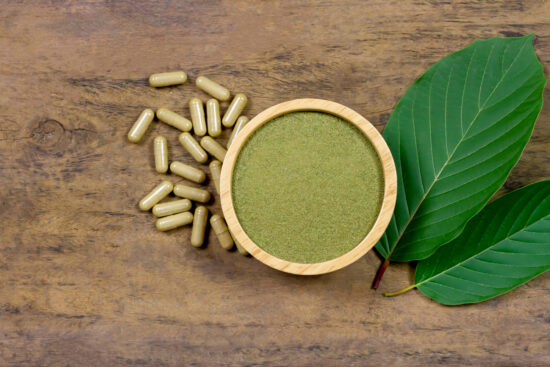
How Old Do You Have to be to Buy Kratom? February 2026 By: Coco Johnson Kratom is a popular botanical whose star is on the rise. According to survey data from the National Institute of Health, 5% of the United States population reported using kratom in the past month in 2020. Experts and advocates believe…
 February 17, 2026
February 17, 2026
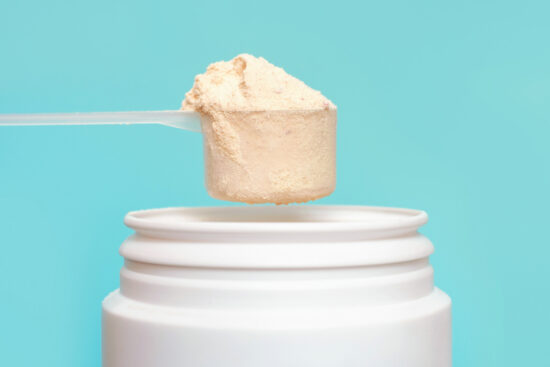
What Is 7-Hydroxymitragynine? February 2026 By: Avery Fritz 7-hydroxymitragynine is a naturally occurring kratom alkaloid found in Mitragyna speciosa, the tropical tree native to Southeast Asia commonly known as kratom. Among the plant’s more than 40 known alkaloids, 7-hydroxymitragynine—often shortened to 7-OH—is notable for its high potency, even though it occurs in only trace amounts…
 February 14, 2026
February 14, 2026

2026 Kratom Legal Status Update February 2026 By: Coco Johnson If you’ve been hearing snippets of information that leave you asking “is kratom legal,” you’re not alone. In 2026, kratom legality is shifting fast, and the pressure is coming from multiple angles. The community is facing outright state ban bills, agency rulemaking, and proposals that…
 February 12, 2026
February 12, 2026

Inside Kratom Spot: How We Maintain Quality Standards in 2026 February 2026 By: Avery Fritz Kratom (mitragyna speciosa) is soaring in popularity. From powders to capsules to drinks, many people are discovering the powerful wellness benefits of this natural supplement and its alkaloids. However, in the United States, kratom remains unregulated at the federal level….
 February 11, 2026
February 11, 2026

Mitragyna speciosa is a tropical evergreen tree native to Southeast Asia. You may know it more simply as the kratom tree. While kratom has gained attention in the U.S. and Europe over the last decade, the leaves of this tree have been traditionally used in parts of Southeast Asia for generations. What makes Mitragyna speciosa…
 January 23, 2026
January 23, 2026

What Is the Strongest Kratom? A Guide to Quality and Concentration Intro: Reframing “Strength” in Kratom When people search for the “strongest” kratom, they are usually looking for a product that delivers the most impactful experience. However, in the world of high-quality botanicals, “strength” isn’t a one-size-fits-all label. It is a relative term that depends…
 January 10, 2026
January 10, 2026
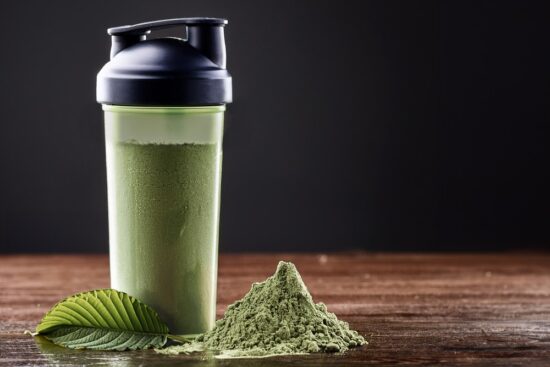
How to Mix Kratom into Liquids Like a Pro Updated September 2025 By: The Kratom Spot Team SUMMARY: Mixing kratom into liquids is one of the best ways to make it more enjoyable and easier to take. From citrus juices and smoothies to teas, protein shakes, or even chocolate milk, the right liquids and…
 September 30, 2025
September 30, 2025

Traveling with Kratom: What You Need to Know Updated September 2025 By: The Kratom Spot Team SUMMARY: Traveling with kratom in the United States is generally legal, but it’s crucial to understand local laws before hitting the road or boarding a flight. While TSA has no specific ban on kratom, several states and cities do,…
 September 29, 2025
September 29, 2025
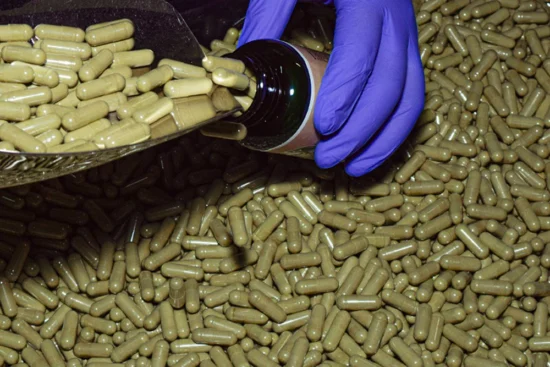
Buying Kratom in Bulk: What You Need to Know May 2025 By: The Kratom Spot Team SUMMARY: The blog discusses the benefits of buying kratom in bulk, like cost savings and having a consistent supply, while advising buyers to choose reputable vendors. Discover the importance of product quality, proper storage, and learn about potential legal…
 May 14, 2025
May 14, 2025

Understanding Kratom’s Primary Alkaloid, Mitragynine June 2025 By: The Kratom Spot Team What Is Mitragynine? Mitragynine is the most abundant active compound found in the leaves of Mitragyna speciosa, commonly known as kratom. It belongs to a family of plant-based compounds called alkaloids, which are known for their physiological effects on the human body. In…
 May 6, 2025
May 6, 2025

How Much Kratom Should I Take? A Guide to Kratom Dosing April 2025 By: The Kratom Spot Team SUMMARY: Finding the right kratom dosage is highly individualized and depends on factors like body type, wellness goals, strain, and consumption method. This guide explains dosage ranges, how capsules and powders differ, and provides tips to measure…
 April 30, 2025
April 30, 2025

How to Spot Fake or Low-Quality Kratom Updated September 2025 By: The Kratom Spot Team SUMMARY: Not all kratom on the market is pure or safe, so it’s important to learn how to spot fake or low-quality products. This guide explains the risks of using contaminated kratom, how to identify counterfeit or stale batches, and…
 April 21, 2025
April 21, 2025
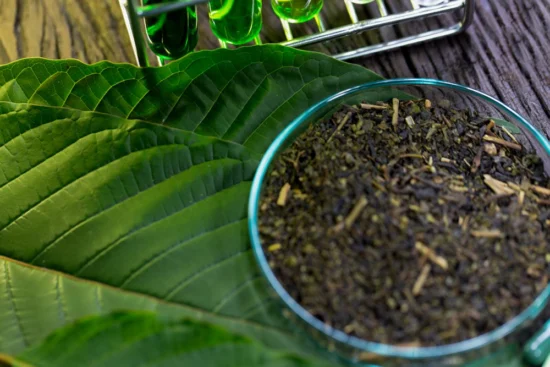
What is Trainwreck Kratom? Updated September 2025 By: The Kratom Spot Team SUMMARY: Trainwreck Kratom is a proprietary blend marketed as a “full spectrum” kratom product, but its vague formulation and exaggerated claims make it unreliable and potentially risky. This article explains why Trainwreck may not live up to the hype, highlights safer alternatives, and…
 April 12, 2025
April 12, 2025

How to Prepare Kratom as a Tea, Powder, Capsules, and More Updated September 2025 By: The Kratom Spot Team SUMMARY: There are many ways to prepare kratom, from taking raw powder or capsules, to preparing kratom in teas, lattes, and creative recipes. This guide explains the basics of choosing strains, dosing safely, proper storage, and…
 March 26, 2025
March 26, 2025
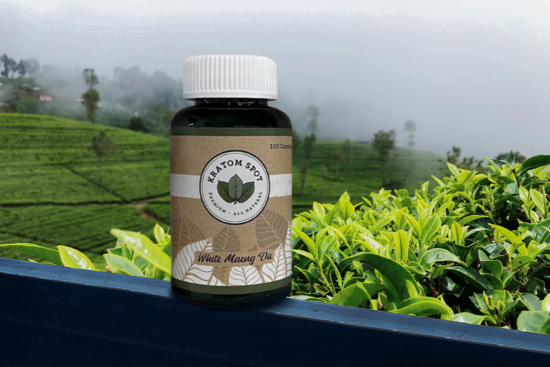
The Ultimate Guide to White Kratom Updated September 2025 By: The Kratom Spot Team SUMMARY: White vein kratom is known for its upbeat, focus-enhancing effects, making it a popular natural alternative to caffeine. This guide explains the science behind white strains, their uses, potential side effects, preparation methods, and how to find high-quality white kratom…
 March 14, 2025
March 14, 2025

Blog Title Updated October 2025 By: The Kratom Spot Team SUMMARY: The American Kratom Association (AKA) is a nationwide advocacy organization working to protect kratom users in the United States. They advocate for legal protections, establish quality standards through GMP certification, and promote safe, transparent access to kratom nationwide. KEY TAKEAWAYS: The American Kratom Association…
 March 10, 2025
March 10, 2025

The Ultimate Guide to Red Kratom Updated September 2025 By: The Kratom Spot Team SUMMARY: Red vein kratom is a potent strain valued for its deep grounding effects, often used to unwind or create a more tranquil mood. This guide explains what makes red kratom unique, its common uses, potential side effects, how to take…
 February 26, 2025
February 26, 2025

The Key Difference Between Kratom Strains Updated September 2025 By: The Kratom Spot Team SUMMARY: Kratom strains are typically categorized as red vein, green vein, or white vein. Each strain offers different effects based on the age of the leaf at time of harvest, which affects the natural alkaloid balance. This guide explains the differences…
 February 23, 2025
February 23, 2025
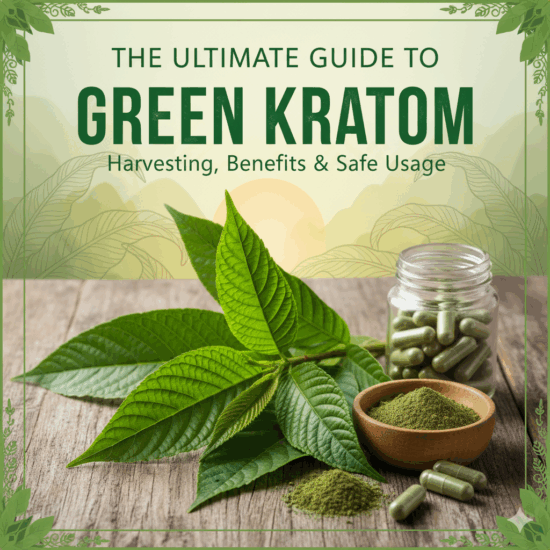
The Ultimate Guide to Green Kratom Updated September 2025 By: The Kratom Spot Team SUMMARY: Green vein kratom is a balanced “middle strain” that combines the vibrant qualities of white vein strains and the grounding effects of red vein strains. This guide explains what makes green kratom unique, its uses, side effects, preparation methods, and…
 February 21, 2025
February 21, 2025
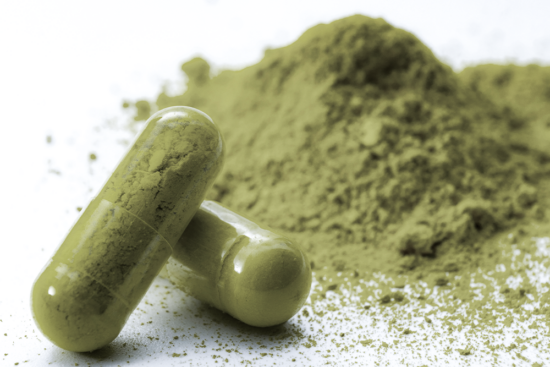
Capsules vs. Powder: Which Kratom Form is Right for You? Updated September 2025 By: The Kratom Spot Team SUMMARY: Kratom powder and capsules both deliver the same benefits, but how you take them is different. Powder offers versatility, faster effects, and lower cost, while capsules provide convenience, discretion, and taste-free use. This guide explains the…
 January 31, 2025
January 31, 2025

A Guide To Maeng Da Kratom: What To Know Updated September 2025 By: The Kratom Spot Team SUMMARY: Maeng Da Kratom is a powerful strain originally cultivated in Thailand for higher potency, offering elevated levels of kratom’s key alkaloids. This guide explains its origins, harvesting and preparation methods, different Maeng Da varieties, and why sourcing…
 October 10, 2024
October 10, 2024

Is kratom legal in your area? It’s an important question! The short answer? Probably. Kratom is legal throughout the vast majority of the US, with no pending laws to list it as a controlled substance or otherwise ban it. While this natural supplement remains legal in most areas of the US, kratom is banned in…
 September 6, 2024
September 6, 2024

Joe Rogan is the arguable king of podcasts. In “The Joe Rogan Experience”, Rogan’s focus is wide-ranging and entertaining, often delving into a wide range of topics, from the mundane to the controversial. One particularly intriguing subject has been his exploration of kratom, the natural botanical we know and love. With his candid and often…
 July 22, 2024
July 22, 2024

When Summer comes around, it’s time to relax, enjoy life and all it has to offer. And there’s no more refreshing, Summery drink than a glass of ice cold, delicious lemonade! But for the kratom lover, there’s an even more delightful option: kratom lemonade. This tasty beverage brings out all the best from your kratom…
 May 3, 2024
May 3, 2024

Kratom is a powerful tool for health, wellness, and getting the most out of users’ lives. But unfortunately, there are many disreputable vendors out there looking to take advantage of the kratom community. Because these vendors sometimes sell inferior, misleading, or even dangerously adulterated products under the “kratom” label, it’s important that reputable vendors like…
 April 5, 2024
April 5, 2024

























